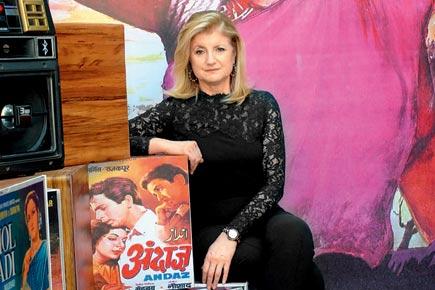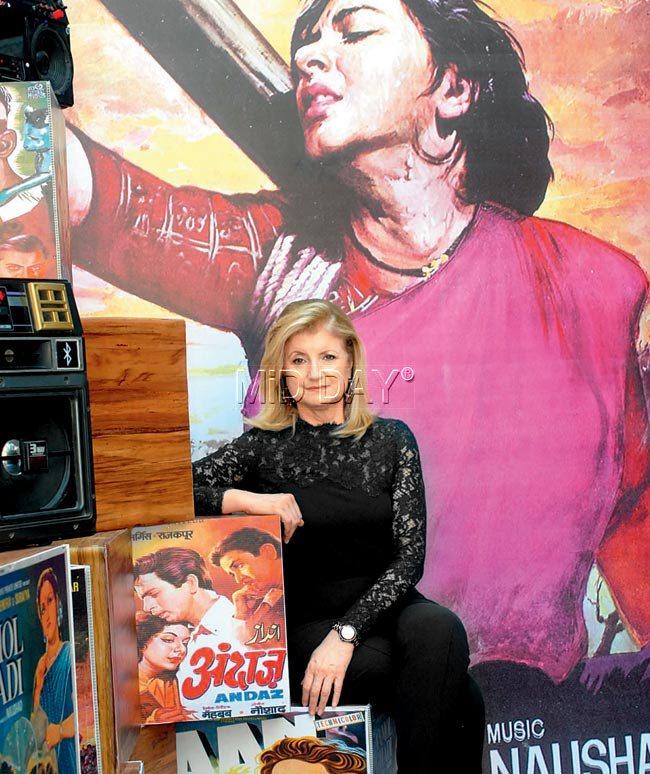Arianna Huffington, editor-in-chief of the Huffington Post launched the Indian edition of the world’s most powerful blog, this Monday. Kanika Sharma caught up with the Greek-American author when she was recently in Mumbai

Arianna Huffington, editor-in-chief, Huffington Post, interview, books, Mumbai Guide, Greek-American author, Thrive
Q. In your book Thrive, you speak of altering one’s perception of life by meditating, being mindful and dedicating a set number of hours to sleep. But what about how our lives are structured around stress as one works for 60 to 80 hours in a week?
A. The latest science unequivocally shows that increased stress and burnout have huge consequences for our personal health. At work and in every aspect of our lives, ending this culture of burnout begins with understanding that for far too long, too many of us have been operating under the collective delusion that burning out is the necessary price for accomplishment and success. As the science shows, performance is actually improved when our lives include time for renewal, wisdom, wonder and giving.
ADVERTISEMENT

Pic/Sameer Markande
Q. In your book, you write, “working to the point of exhaustion and burnout is considered a badge of honour — was put in place by men, in a workplace culture dominated by men.” What should be a proposed workplace culture that is conducive to both genders?
A. It would be a culture that recognises that we don’t leave our humanity at home when we leave for work. This means incentivising healthy work habits, so that those who for some reason insist on overwork and burnout are the marginalised ones, not those who guarantee their best performance by taking care of themselves. If we’re going to redefine what success means, if we are going to include a Third Metric to success, beyond money and power, it’s going to be women who will lead the way. We are already witnessing a global shift toward leadership values traditionally considered feminine: flexibility, compassion, collaboration, empathy and nurturing.
Q. With HuffPost India now live, what issues will appeal most to Indian readers? What are the challenges you anticipate for HuffPost India?
A. India is facing huge and unique challenges — from poverty and sanitation to sexual violence and endemic corruption. While HuffPost India will be reporting on all these challenges and all that is dysfunctional and not working, we’ll also be relentlessly telling the stories of what is working, including spotlighting organisations that are tapping into Indians’ collective creativity and compassion. Beyond its 1.24 billion people, India is vast in every way — its history, its colours, its food, and its spiritual traditions. Telling this, and creating a platform for Indians to tell their stories themselves, is naturally a challenge.
Q. In your opinion, what are the dynamics that determine digital journalism as compared to print journalism?
A. The dynamics are more similar than dissimilar, because there is a convergence. Increasingly, online news operations like The Huffington Post are adopting traditional, basic tenets of journalism: fairness, accuracy, storytelling, deep investigations. Mainstream traditional mediums are adopting more digital tools that can bring in the community to make it part of the creation of journalism, through reports from the ground, through video, through Twitter feeds and through the new media available to us. Despite all the dire news about the state of the newspaper industry, we are in something of a golden age of journalism for news consumers. There’s no shortage of great journalism, and no shortage of people hungering for it. Many different business models are being tried to connect both.

Thrive, Arianna Huffington, Ebury Publishing, Random House, Rs 550. Available at leading bookstores.
Do you think people like us in developing countries have a choice where we decide not to work at a frantic pace — a norm in many companies of India Inc?
I’d say that people whether in developing or developed countries who are struggling to put the food on the table or are juggling multiple demands on their time face the same questions. It’s not a lecture to take time to recharge. It’s what they say on aeroplanes that you put your oxygen mask first. It’s not a matter of time, it’s a matter of energy. You need to make sure that the quality of energy you bring to the task is high. Let’s take the case of the people who are struggling with poverty or challenging circumstances; you see some people fall apart and some people persevere the challenges. What’s the difference? The difference is resilience. We all have that quality of strength. Some people are able to tap into and some people are not. Recently I watched Angelina Jolie’s Unbroken where a man survived the Japanese prisoner of war camp. What this man went through, he survived while others couldn’t have tolerated it. I think it’s interesting to look at what makes that quality.
As machines have taken over our daily work, creativity is going to matter more and more. Employees will be more interested in identifying employees who can be creative and then how do we recruit them and retain them resulting in a higher premium on creativity.
 Subscribe today by clicking the link and stay updated with the latest news!" Click here!
Subscribe today by clicking the link and stay updated with the latest news!" Click here!






